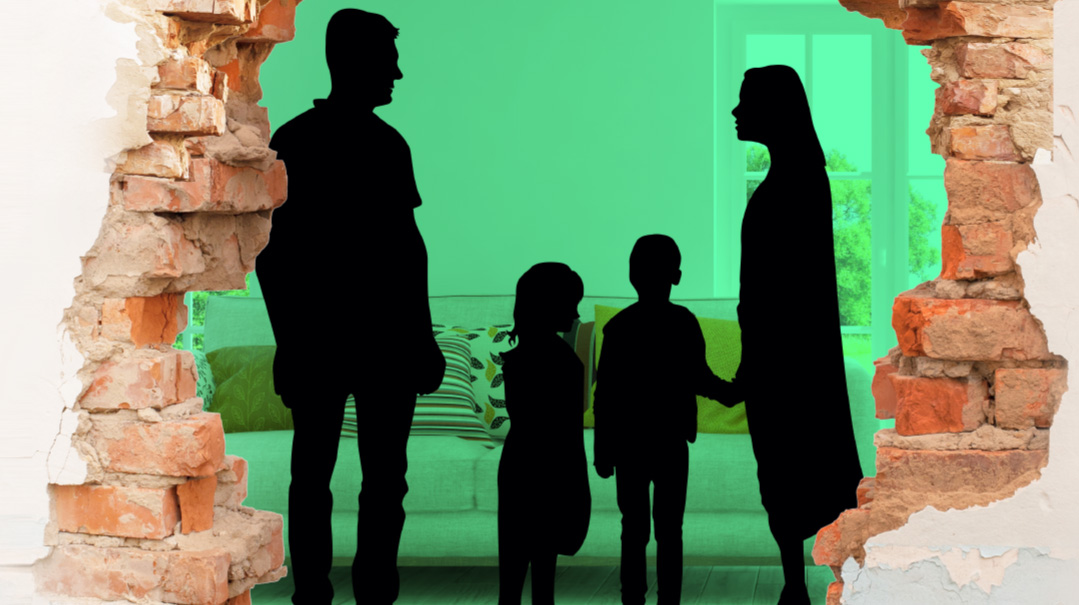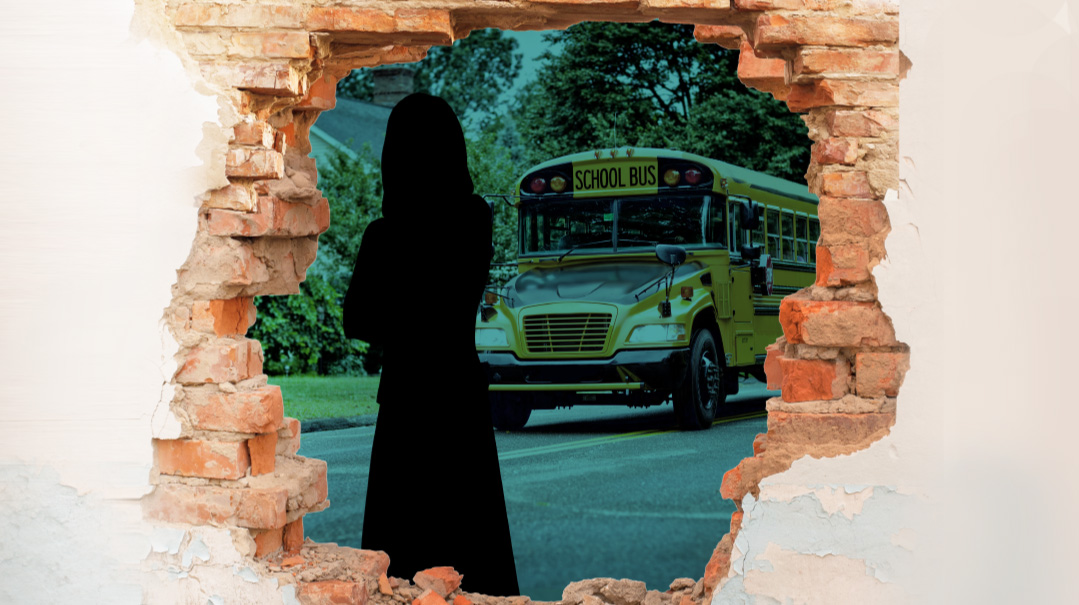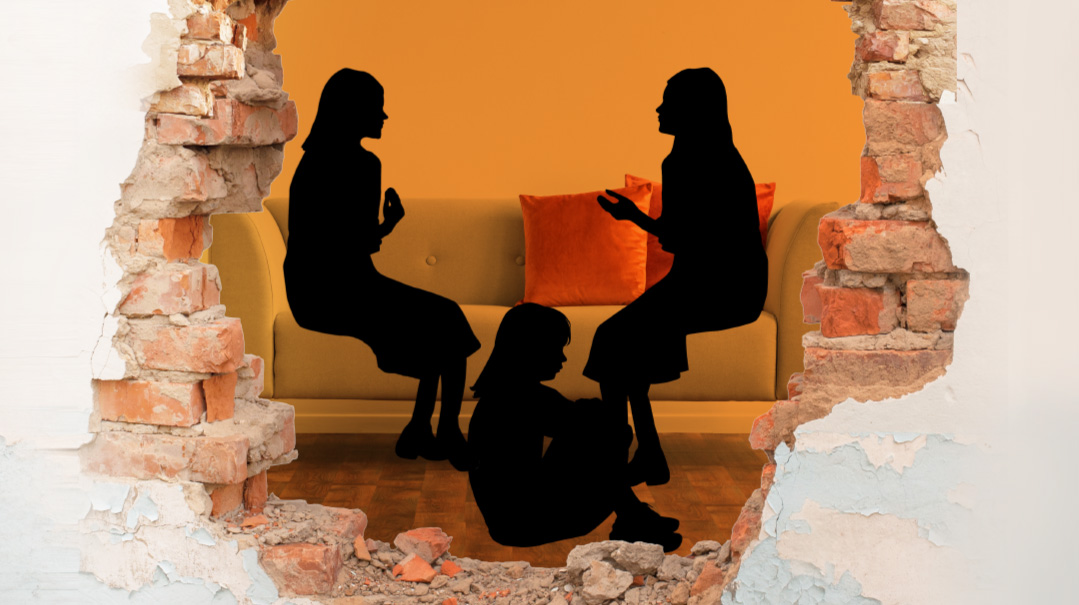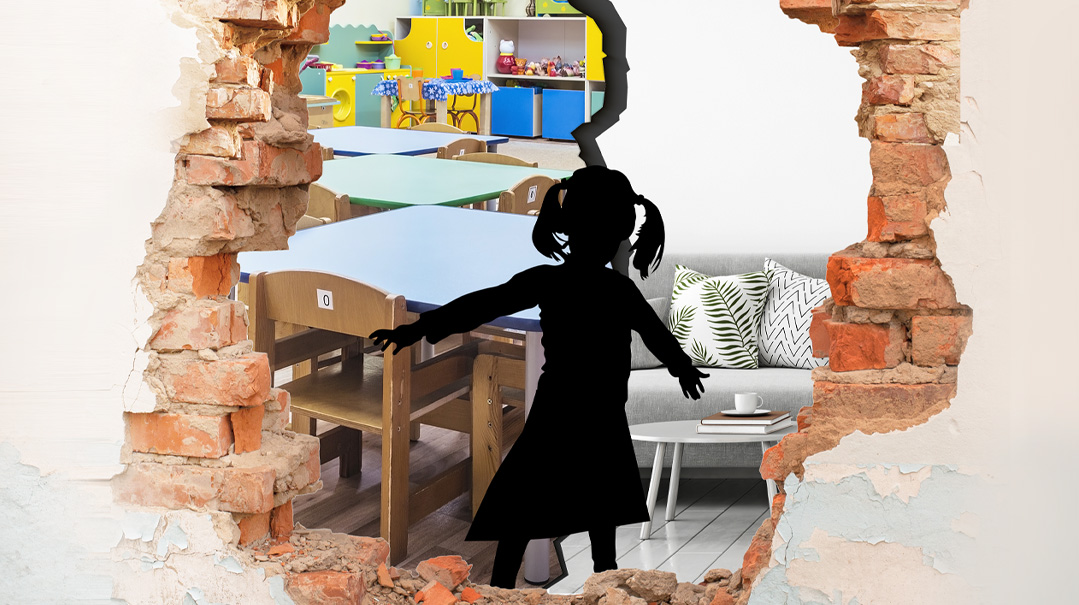Will an out-of-the-box yeshivah offer my son too much freedom?

Sometimes, the absence of clarity sends us on a path of asking more and more people and getting more and more confused

Moderated by Faigy Peritzman
My oldest son is an incredible kid. He has a sunny nature and loves people. He’s also extremely creative, super-talented musically, and an out-of-the-box thinker and mover. He’s organized his own band, together with three other like-minded boys, and they spend hours practicing in our garage.
In school, though, he often runs into issues with his slightly zany antics and his need to march to his own tune. But his rebbeim are great, and we have a terrific working relationship with the administration.
Now my son’s graduating eighth grade, and we’re faced with the challenge of finding him a good yeshivah high school for next year. On one hand, he’d do well with a slightly alternative setting, with rebbeim and principals who’ll understand him and give him space.
On the other hand, those types of schools often allow much more leeway in other areas — and that may drag him down spiritually or allow him friendships that could become problematic. Furthermore, by sending to a school that’s off the beaten track, we may be branding our younger sons when they try applying to the more standard yeshivos.
We want our child to thrive, to become the best he can be in a Torah atmosphere. Do we go for an out-of-the-box place, despite the drawbacks, or expect him to be something he’s not and pick the traditional simply because it’s safer?
Rabbi Mordechai Groner, a veteran mechanech, has been the rosh yeshivah of Yeshiva Ateres Shimon in Far Rockaway — a yeshivah for learning boys who’d like to work part-time — since 2006.
I commend you on your question — by voicing your concerns, you’re already halfway to the resolution.
You’re correct in feeling that as parents, the decision you make at this point will have a tremendous impact on your son’s future. I’m not trying to scare you, but to emphasize that the next few years will be important ones in your son’s development. It’s clear that you’re tuned in to your son’s needs, and are choosing a yeshivah based on what’s best for him.
Having said that, you’re correct in feeling there are some “top-notch” yeshivos that will try to form him into a mold they deem most ideal, and there’s a possibility that this will cause your vibrant, creative child to explode.
The good news is that your son is coming of age in a landscape of yeshivos very different to what existed even 15 years ago. A decade or two ago, most respectable yeshivos aimed to produce metzuyanim — top-notch learners who’d embark on a path to become gedolei hador. Our educational systems felt there was one best derech and aimed to reproduce it across the board.
Baruch Hashem, that’s no longer the case. Mechanchim have come to realize that one size doesn’t fit all. We’ve come to the realization that “chanoch lana’ar al pi darko” must apply to each yeshivah bochur, recognizing and catering to his personal strengths to optimize his potential.
Therefore, all across our educational horizons, there’s been a mushrooming of many good frum yeshivos that will give a child his space, while molding him to become a ben Torah and contributor to society.
Boys such as your son — young men with tremendous talent, huge potential, and a sincere desire to grow and learn — are a gift to our mosdos. We value them, seeing them as potential powerhouses, the movers and shakers, and yes, possible future gedolei Yisrael.
Allow me to profess a strong belief that we must teach our children that gedolei Yisrael didn’t arrive in this world as such. They’re normal human beings who struggle with challenges, who work on themselves, and who utilize all the gifts Hashem provided them with, both the positive and perhaps the less positive, to become the great men they are.
I’m close with Rav Tzvi Meir Zilberberg shlita, an outstanding tzaddik in Yerushalyim, whose shemiras einyaim, dikduk b’mitzvos, and overall righteousness is clear to all those who see him. But I’ve seen the work that goes into acquiring this exemplary level of avodas Hashem, the gevurah needed to rise above challenges.
We must inspire our youth to recognize that to become a gadol means to aspire to be a gadol, to work on it, and that our gedolim are made from regular, normal people who worked on their middos throughout the day-to-day grind.
The Chofetz Chaim didn’t write the Mishnah Berurah in one day; it took 26 years. But the Chofetz Chaim merited writing the Mishnah Berurah because he persevered day after day until he completed it. Tzaddikim grab the opportunity when it presents itself.
You can’t jump a ladder in one shot, you must climb each rung as it presents itself. This is what makes a person great.
There are many yeshivos focused on this slow and steady growth. Yeshivos that realize that the straight and narrow is leading us on a collision path will sacrifice many souls. They’ve recognized the need to bend and move around the curve with these children to bring them to the destination called success.
I have confidence that your bright and eager son will find a mainstream yeshivah that will allow him his space and guide him in his avodas Hashem.
Unfortunately, I don’t think our systems have turned that corner yet for a similar good, sweet child who struggles with the actual academics of learning. We need to look out for him as well. Because his ruchniyus cannot, chas v’shalom, suffer because a daf of Gemara is too difficult for him. We need to establish solid yeshivos equipped with many ways of teaching and learning, that offer remedial help, smaller classes, varied curriculum, and knowledgeable mechanchim.
I’ll be perfectly honest with you. I wasn’t an “alef-alef kid” in the classroom when I was growing up. And I’m running a yeshivah now, davka working with talmidim who may feel they aren’t the cream of the crop, but I know they have the potential to be the future leaders, askanim, and even gedolim in Klal Yisrael.
I implore society as a whole, and you, the parents of a unique and sparkling neshamah, to recognize that our educational systems must continue to widen our perspectives and hone the potential these neshamos possess.
Dina Friedman is the founder of the Dina Friedman Academy. She has been educating and inspiring thousands of Jewish women internationally for well over two decades.
The conflict you pose is one we all face whenever we try to make a decision affecting the future. Often, we have an ideal solution in our minds that we hope we’ll be able to find. But, just as often, the ideal doesn’t seem accessible, and we have no guarantee that things will work out the way we want them to.
In facing this question, you feel you must choose one option over the other — either respect your son’s personality or provide a strong spiritual setting for him. I’d like to approach this differently, following the principle of manifestation.
The principle works as follows: You need to clarify what it is exactly that you need in this situation to determine what your desired outcome is. Then, instead of stating, this is the reality and I need to conform to the reality, own the desired outcome and surrender it to Hashem.
Once you’ve done that, you need to articulate, in a tefillah: “Hashem, please allow my request to be accepted for my highest good, and for the good of everyone else involved.” Then you need to be open to the outcome in whatever form it will be handed to you.
This is the basic principle. Let’s break this down into a step-by-step process:
Step One: Contrasts. Make a list of every concern and worry you have for your child that’s dependent on this decision. Will my son relate to his rebbeim? Will he have space for his personality to develop? Will he have a strong social support system? Write down all the worries you’re harboring. This helps you identify what you really want, by showing what you don’t want.
Step Two: After making this list, we’re going to create a flip side of it called Clarity. Take every worry that you wrote in your Contrast list, and write the flip side of each concern, detailing the ideal way you imagine your dilemma will be solved. It should be realistic, but the dream version of how everything will turn out. Write it in request form to Hashem. Please, Hashem, let my son have great rebbeim who understand him. Please Hashem, allow my son to develop his personality to its fullest. Please Hashem, provide my son with great friends that help him grow in ruchniyus and gashmiyus.
Step Three: Guided Imagery. Now close your eyes and imagine placing each item you request, one by one, into Hashem’s loving Hand.
Step Four: Now write out an emunah statement: I believe with all of my heart that Hashem is orchestrating all I need to bring me my desire for the highest good.
We make decisions and choices constantly, but we never have guarantees that things will work out the way we want them. So typically, we go into a place of worry and fear. But when you’re worrying, you’re not in a place of emunah. Dovid Hamelech tells us in Tehillim: He’emanti ki adaber. The more you speak statements of emunah, the more it awakens emunah in your heart. It accesses the deep place inside you where you know that even though your desired outcome isn’t guaranteed, you feel deep down that everything is good.
Step Five: Write out this emunah statement in detail. Tell the story of exactly how you want this issue to be resolved. Use the present tense and start each statement with emotional words. I love knowing that we’re choosing the right yeshivah. I’m so thrilled that the staff is in tune with my son. I’m so grateful that my son is making good friends. Say these statements every day until you get to a place that you know and feel that the best resolution will materialize.
There needs to be a lot of surrendering here. Because if you’re coming from the outside — from the world of what is — then you’re doing a lot of hishtadlus. You’re using your analytical mind. And within logic, there’s room for worry.
But if you’re coming from your place of emunah, then there’s no need to analyze. While you still may not know where the answer lies, the answers can be created according to what you need. The power of surrendering ourselves through emunah allows new answers to appear on our horizon.
Emunah actually has the power to attract what you need. So, what’s going to happen is that things are going to start coming your way. You’ll have ideas. You’ll hear from others about a specific yeshivah, a derech. You’ll hear things because you’re open to it. Life will lead you toward the true resolution that’s best for your child.
Rabbi Dovid Becker, LCSW, ADHD-CCSP specializes in helping individuals and families with ADHD. He is a program coordinator and professor at the Wurzweiler School of Social Work and is the director of Camps Yachad and Neranina in Lakewood.
It would’ve been a lot easier to answer this question if it were a simple one. Wouldn’t it be amazing if there was that perfect yeshivah out there that had a warm, caring staff with flexible personalities who would appreciate and enjoy your son’s strengths while having healthy, Torahdig talmidim?
Unfortunately, in the absence of custom-made yeshivos, you’re stuck in the same difficult place lots of parents find themselves when it comes to making big choices that will impact their children’s future. You want the best for your son and recognize his tremendous strengths that will shine in the right environment. But you’re also aware of the potential cost of putting him with kids who may not be the best for him. Here are three points to help you work your way through this:
Find Your Voice. The hardest part of a dilemma like yours is that there’s likely no clear answer. I’d love to find someone to just tell me that this yeshivah (or camp, or seminary, or shidduch, or orthodontist, etc.) is definitely the better choice, but with the exception of a gadol, there’s no way someone can know definitively that there are clear advantages to either choice.
Sometimes, the absence of clarity sends us on a path of asking more and more people and getting more and more confused. (This article alone has three opinions. Good luck!) We’re desperately hoping to find that one person who will tell us with authority and conviction, “This is it!” If we can just find that voice of clarity, we can avoid having to make our own decision in a situation where neither choice is obviously right.
A large part of this is the very understandable fear of making the wrong decision and then having to live with the guilt and regret of having made a choice that was harmful instead of helpful. What can help break this gridlock is internalizing for yourself that both choices are really somewhat “right” and also somewhat “wrong” and reminding yourself that there’s no easy answer.
If you’ve done that, you’re now ready to trust your intuition as parents who know their son better than anyone else. All the advice and guidance is helpful and should be taken into account as a factor, but listen to and trust your own inner voice.
Watch for Blind Spots. We all have negiyus/personal feelings when it comes to making decisions for our children. For better or worse, our kids are a reflection of us. This is true when it comes to choosing schools, camps, careers, shidduchim, etc. If your kids ever have a meltdown when they see all the nosh near the register at the grocery store, you’re painfully aware of this reality and may have experienced how much our fear of what others think of our parenting skills plays a role in our lives.
These worries about what people will think can be blind spots when it’s time to make difficult decisions. If you relate to this, good news: You’re normal! Self-awareness is key to dealing with this very normal reality. When we can be open and honest with ourselves about the things we’re thinking deep down, our personal feelings can be an acknowledged factor in the decision as opposed to being the cause of the decision.
Maximize the Opportunity. This decision closely parallels many decisions we make for ourselves. We need to decide which neighborhood to live in, which shul to attend, which bungalow colony to go to. As with the choice of yeshivos, there are pros and cons to each, and there’s usually no perfect answer. Still, when we make these decisions ourselves, using the advice and guidance we’ve received, we take ownership of the decision and feel more secure in our choice. Outsourcing opens us up to blame and resentment.
What a great and valuable opportunity to involve your son in the process and help him feel ownership of his future. You can help him learn decision-making, responsibility, goal setting, and how to deal with peer pressure. Though you’ll ultimately be the ones making the choice, soliciting his input will help him to feel secure in the outcome.
Your son sounds like an amazing kid with many, many strengths who will go a long way in life. I predict he’ll be an amazingly popular camp counselor. He has the right mix of creativity and charisma. With the right environment and a healthy dose of siyata d’Shmaya, he’ll find his place in mesivta and develop into a true ben Torah. Wishing you much hatzlachah in figuring this out!
(Originally featured in Family First, Issue 769)
Oops! We could not locate your form.











